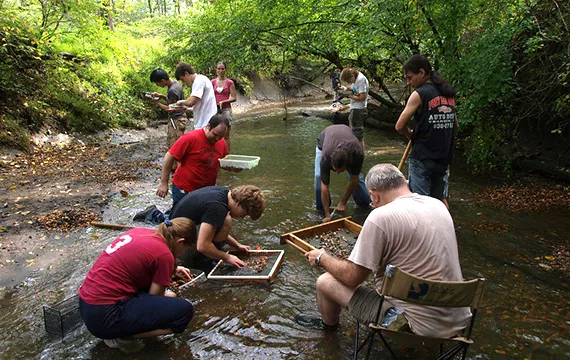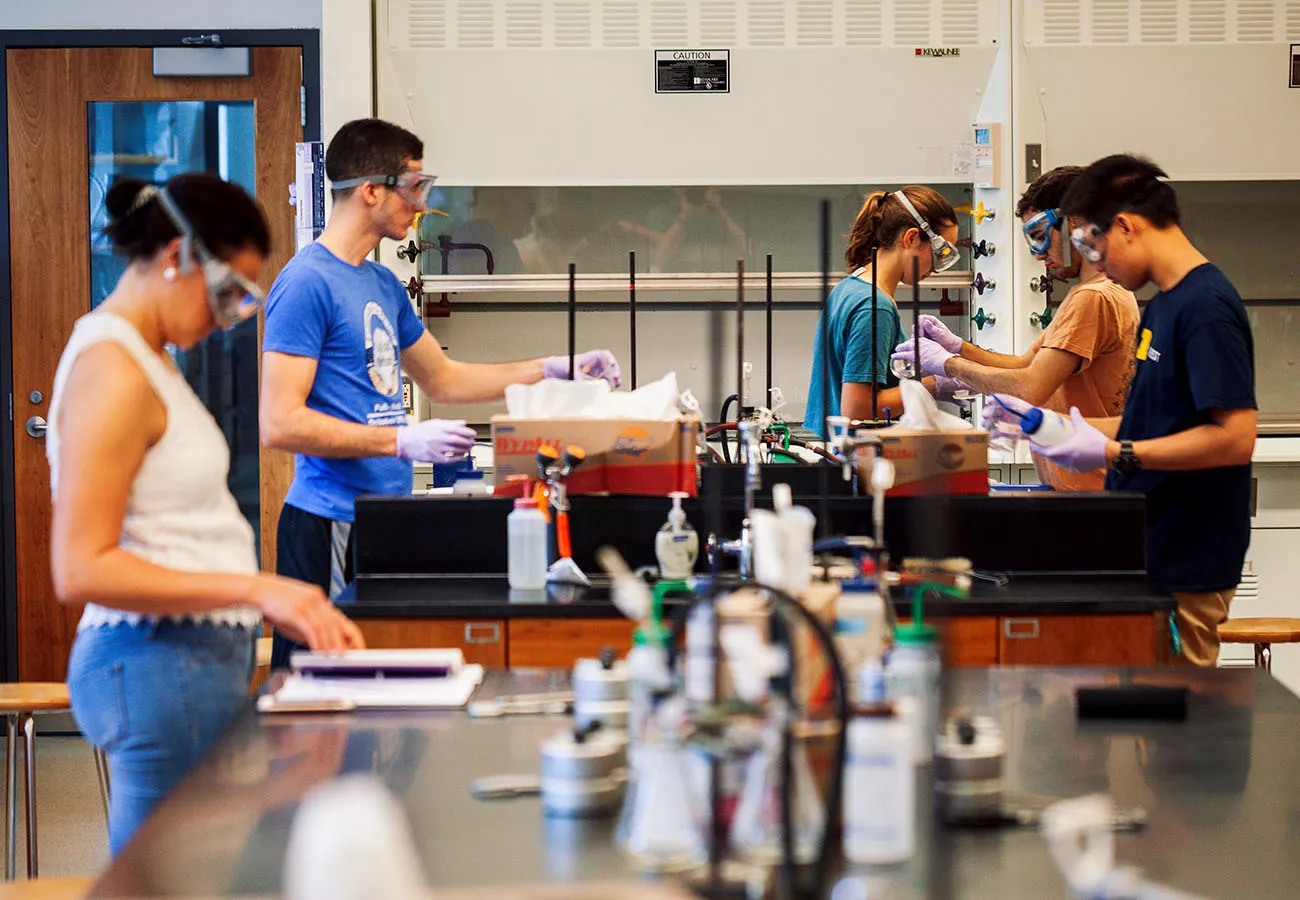Off-Campus Study

Swarthmore College strongly encourages its students to spend a semester or a year studying abroad as an important part of their degree programs. Regardless of the disciplines and departments with which you elect to work, your college education is likely to be greatly enhanced by studying abroad. Your post-graduate lives will, increasingly, require of you an understanding of the international world for constructive citizenship and success in your chosen endeavors.
In recent years, Swarthmore students have successfully completed study abroad programs in a wide variety of countries. We urge you to explore the many opportunities available to you. The College has a system in place to advise and assist students at all stages of the process-planning and preparing, while you are abroad, and after your return.
Getting squared away for a successful semester or year abroad is going to take more leg work on your part than getting prepared for the next semester at Swarthmore, but the effort will be well worth your while. It is important for you to begin your preparation early. Most students undertaking study abroad go abroad during their junior years or the second semester of their sophomore years. However, the freshman year is a good time to start thinking about off-campus study. You will need to follow off-campus study procedures. The first step is to attend a general information session (normally offered weekly throughout the semester). Then you will arrange to meet with a global engagement advisor in order to make arrangements for your particular study abroad.
Where and how to start
For all students, the Global Engagement Office (in Cunningham House) is a good place to start. It is important to select an off-campus study program that makes good sense for you, and access to information, discussion, and the experiences of your fellow students who have studied abroad is likely to help you with your selection. The advisors will be glad to brainstorm your situation with you, whether you are already focused on one or a small number of programs for clear program-of-study reasons, or whether you simply sense that you might like to study abroad, but do not have a specific clue as to where or why. An early visit to the Global Engagement Office should insure that all of the logistical issues are addressed--e.g., costs, credit, fulfillment of requirements for major and degree, course or external examination program, and financial aid. Normally any such issues can be handled satisfactorily with sensible advance planning.
The Global Engagement Office has many resources that should be helpful to you. There is a file of evaluations, by returning students, of the programs in which they just participated, as well as health and safety information for foreign countries. In addition, there are two groups of locally available people with whom conversations about off-campus study should be particularly useful and interesting to you: students who have returned from programs in which you are interested; and, faculty members whose professional specializations include those countries or parts of the world in which you think you would like to study.
Finally, it will be important to integrate your study abroad plans with your plans for completing your major and the remaining requirements for graduation. For students contemplating study abroad during their last two years, preparation of the sophomore plan should expressly incorporate the proposed study abroad, which means that your planning should, by the spring semester of your sophomore year, be far enough along so that you can do this with the help of your sophomore plan advisor. In any event, whenever you are planning to be abroad, it is imperative that you review your study plans with the Academic Coordinator in the Biology Department. The Academic Coordinator normally will help insure that your off-campus study plans are compatible with completion of your major and your degree on schedule.
Types of programs
There are many study abroad programs. Fortunately, this number includes good programs in nearly all parts of the world. Some of these programs require language preparation; many do not. Some programs are focused strictly on the classroom; others emphasize cultural immersion through internships, field projects or service learning. In some programs you will live and dine in dormitories; in others you will live with families or in apartments or make your own arrangements. Many programs are run by colleges, consortia or other organizations from the United States. Other programs are run directly by foreign universities that welcome international students.
A few of you will know at the outset what study abroad program, or at least what type of program, you want to enter. For example, an Asian Studies major may want to spend a semester or a year at a Chinese University, or a Modern Languages major might want to study at a university in a country that speaks the language in which she is majoring. And those reasons are fine. Most of you, though, who want to do off-campus study will not begin with this kind of focus — maybe you will not have any focus at all. That's OK, too. But don't wait! Start tapping into the study abroad network — the Global Engagement Office, returning study abroad students, faculty members with cross-cultural or cross-national experiences and specializations, campus visits by representatives of study abroad programs — as early as possible in your years at Swarthmore, and that focus will come.
Preparing to return to campus
Please refer to the Registrar's website for specific instructions about returning to campus.
Financial aid
With proper advance planning, financial aid is normally applicable for off-campus study. Approval is automatic for programs on the College's approved list.
Academic credit for study abroad
By College regulation, we cannot guarantee a specific amount of credit in advance toward the Swarthmore degree for successful completion of academic work done any place else in the world, with the exception of regular-semester work done at Bryn Mawr, Haverford, and the University of Pennsylvania under the four-college arrangement. Notwithstanding this restriction, our experience has shown that, with proper advance planning, study abroad is nearly always compatible with completion of the degree in eight semesters, including the semester(s) spent abroad. Just how this is going to work out in your case is one of the important reasons for seeing the Global Engagement Advisor early in the planning process.
Most academic work done abroad by students will be credited upon return to campus by the Swarthmore departments that correspond to the courses taken abroad. In Biology, the student should submit all materials and requests for pre- and final approval through the Global Engagement system. This process will alert the Biology Administrative Coordinator who will then determine the appropriate faculty member to evaluate credit for the course.
For work done abroad for which there is no clearly corresponding Swarthmore department (e.g., interdisciplinary courses, internships, courses in academic fields for which Swarthmore does not have a department), there are other applicable credit rubrics, including 'intercultural credit'. If we believe that any of these rubrics apply to you, we will go over them with you and explain them to you at the planning stage. Proper advance planning will insure that you do not run afoul of Biology Department policies, and will also insure that you know how to present you completed work when you return to campus.
Course or honors?
In recent years, the College has established procedures designed to make off-campus study during the last two years compatible with graduation in the Honors Program. The advisor with the Global Engagement Office encourages all interested students to explore this possibility, and will be glad to help you in doing so, and so also will the academic departments of the College. The intention is that off-campus study should not conflict with participation in the Honors Program, but given the sequencing of intermediate courses and advanced seminars and the expectation for research, advanced and careful planning by the student is strongly recommended.




